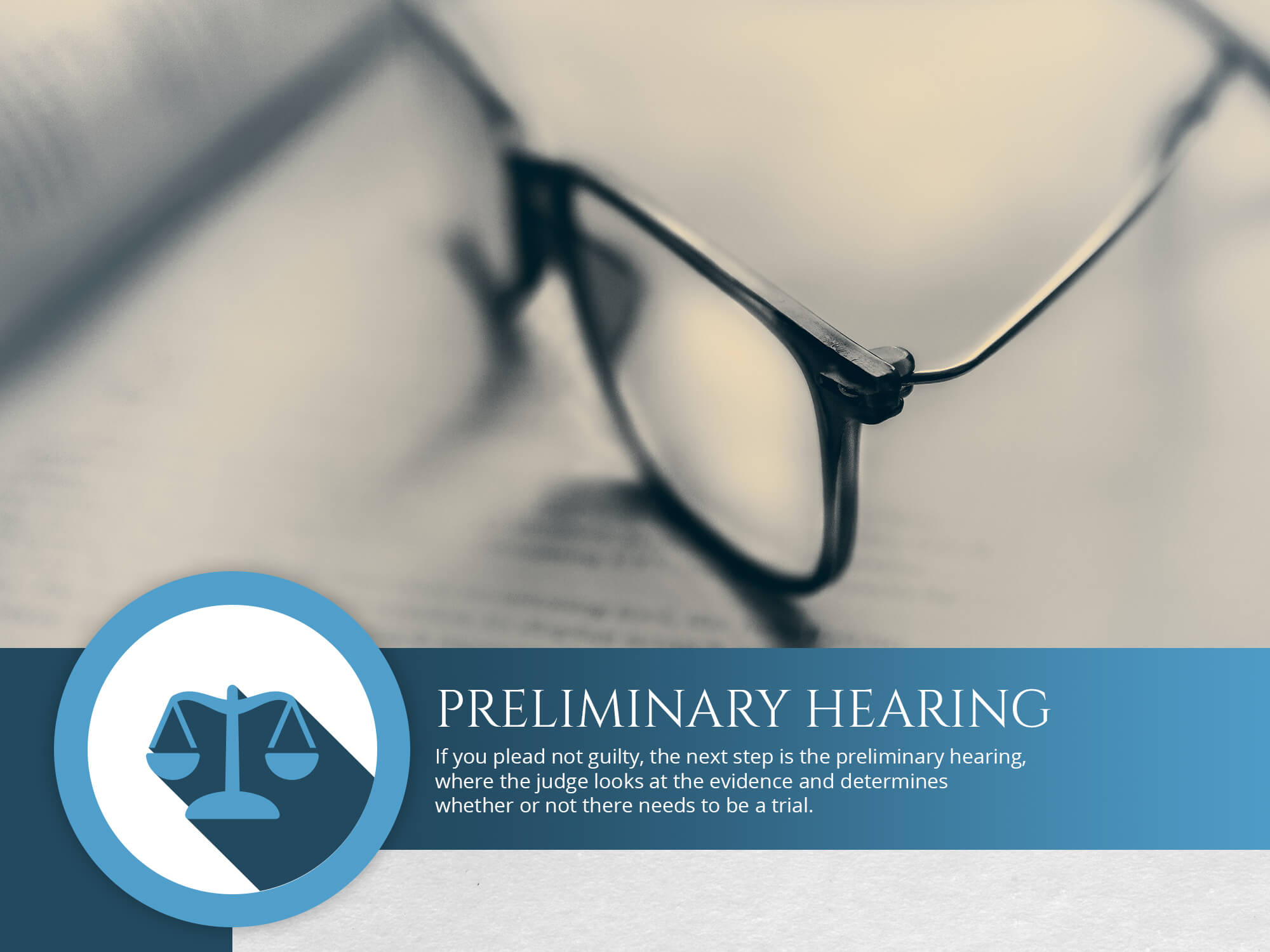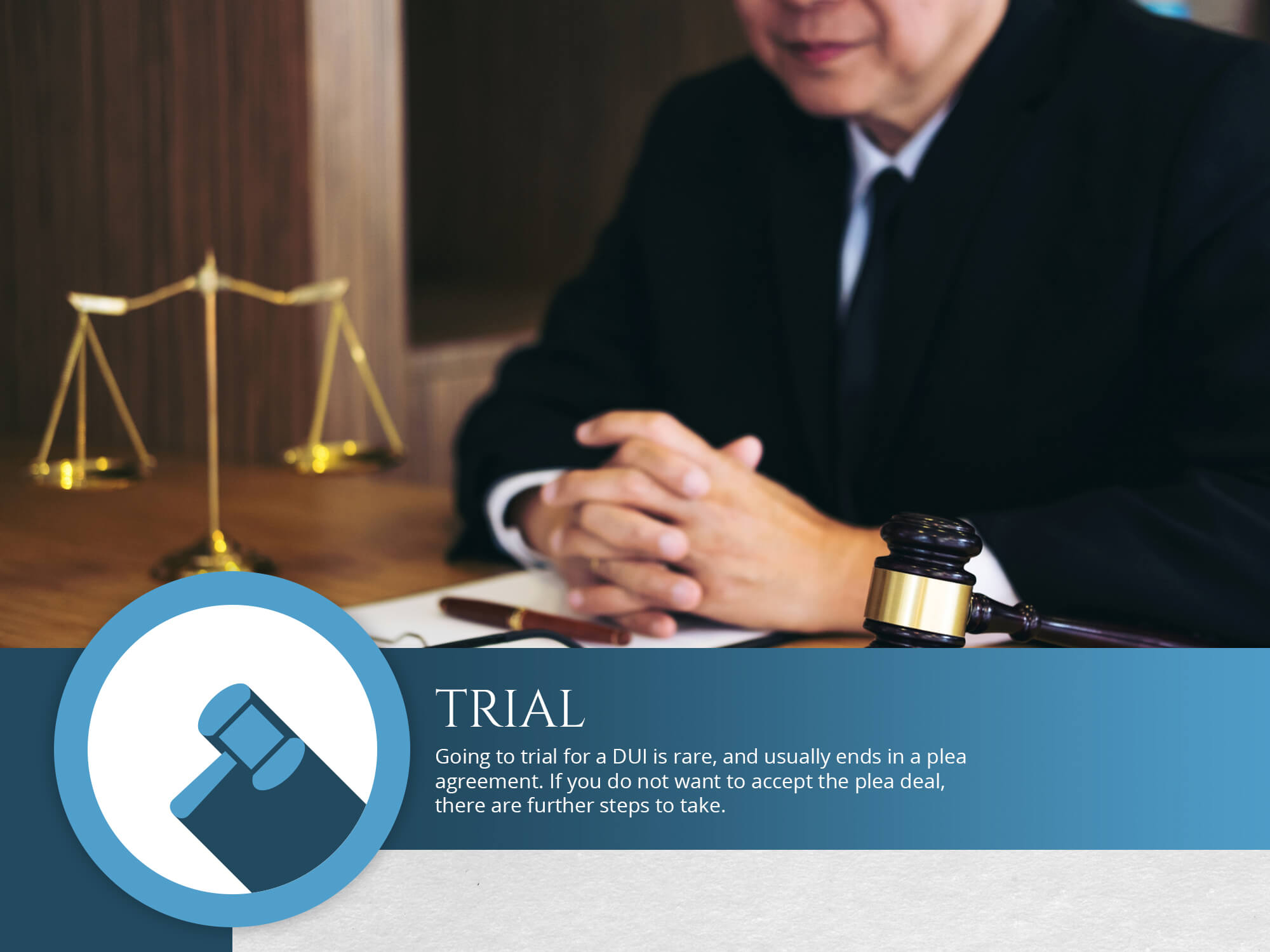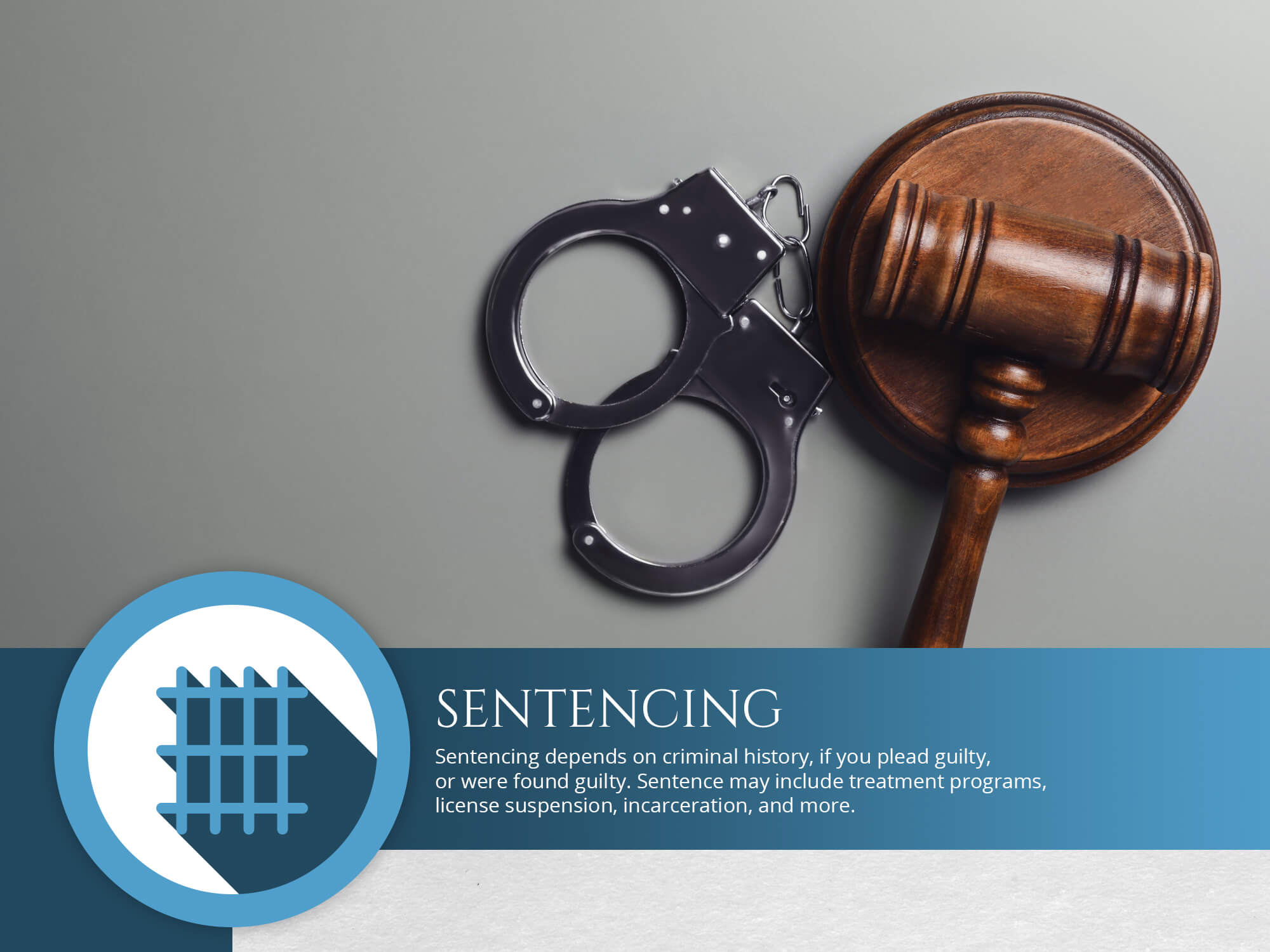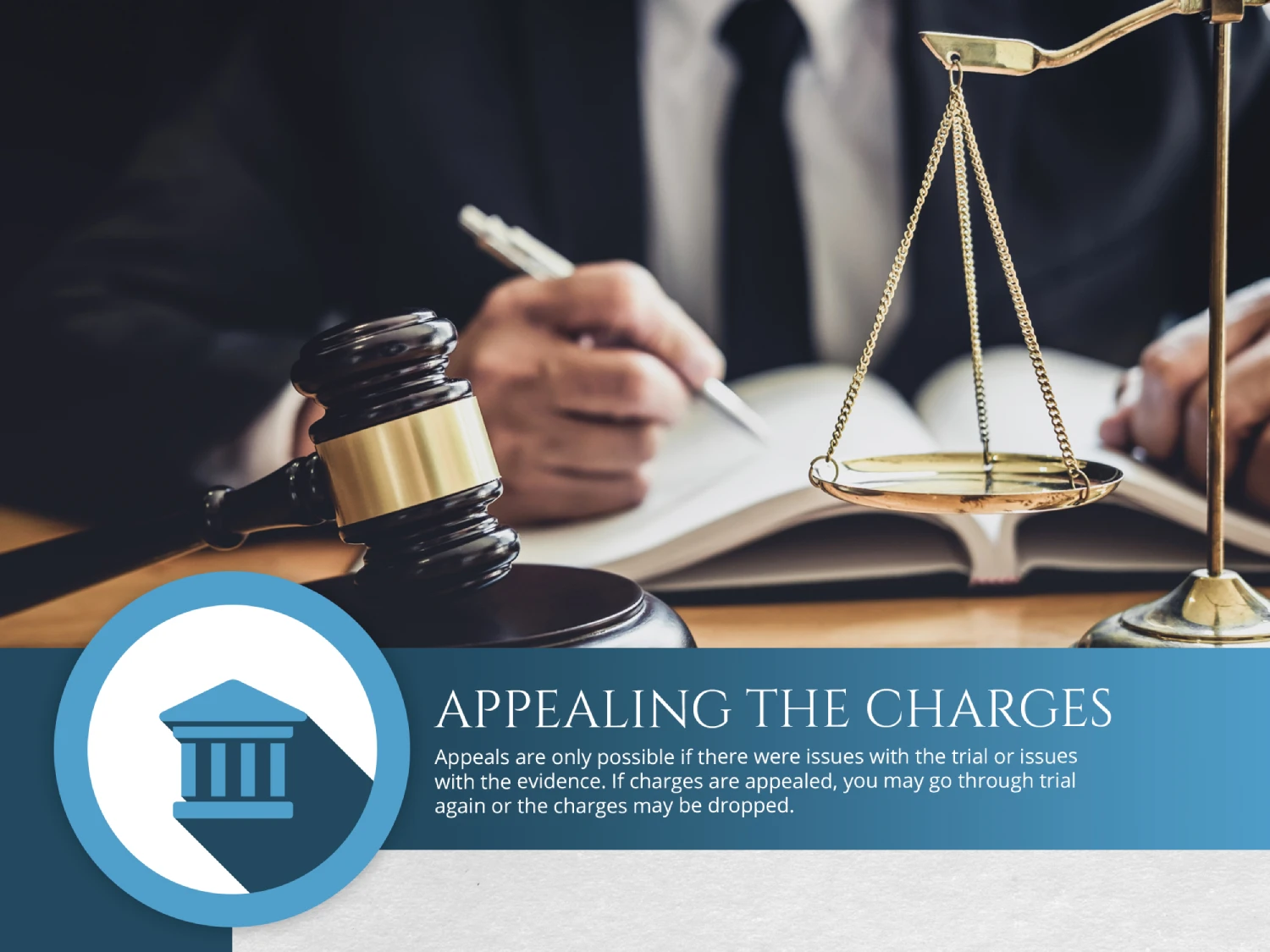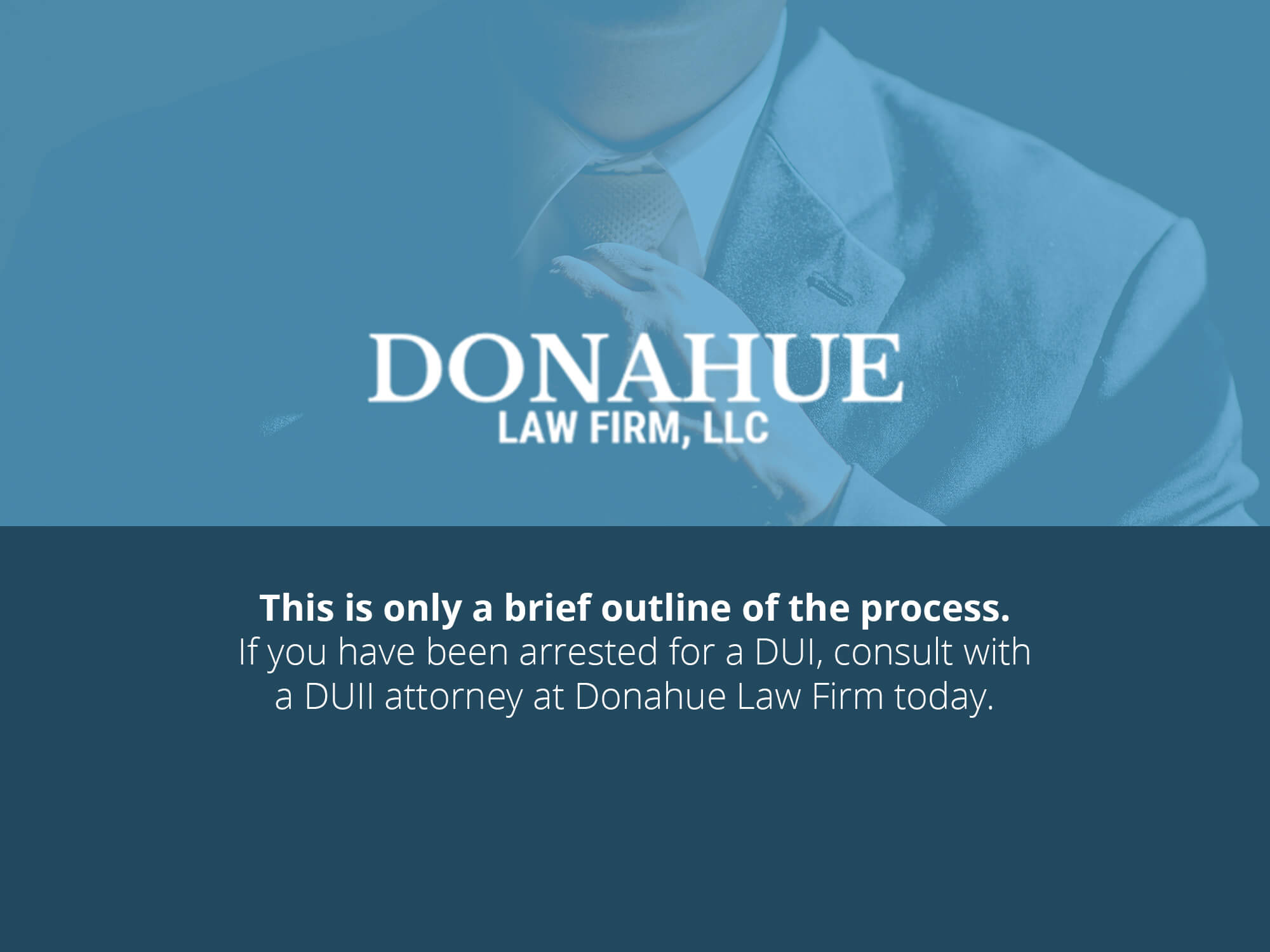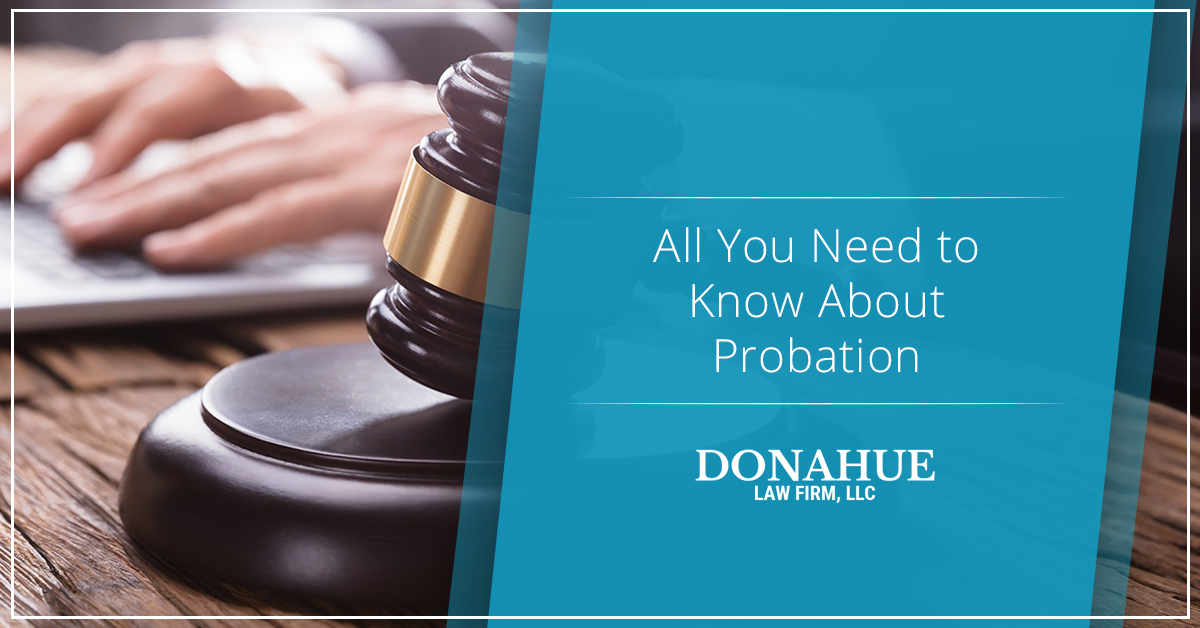
All You Need to Know About Probation
After going through the process of court hearings and potentially a trial, first-time convicted offenders or defendants who are convicted of low-level or non-violent crimes are sometimes given the option to serve probation rather than a jail sentence. This allows the offender to continue living at home as long as he or she follows the terms and conditions of the probation sentence, which are outlined by the judge or the probation officer.
In this post, we will be discussing what probation is, types of probation, certain things to know about probation, and what happens when an offender violates the terms of probation.
At Donahue Law Firm, our team of criminal defense attorneys will work their best to ensure that your charges are reduced, that the sentencing is fair, and when possible, our goal is to have the charges dropped altogether. However, there are occasions when jail time, fines, community service, and/or probation are unavoidable. Keep reading to learn more about probation and contact our law firm as soon as possible when you’re in need of legal assistance. Our attorneys have years of experience with a variety of cases, including DUIs, assault and battery, domestic violence, theft, violation of restraining orders, and more.
What is Probation?
A probation sentence is used to keep low-level or non-violent offenders out of jail and instead they can live within their community. While serving a probation sentence, the offender is under the supervision of a probation officer, who oversees the terms and conditions of the sentence.
Terms and conditions of probation vary depending on the case, the judge, and sometimes the probation officer themselves. Common conditions include:
- Payment of fines
- Community service
- Regular meetings with a probation officer
- Random drug testing and/or attendance of a drug or alcohol treatment program
- Random searches without a warrant
- House arrest program
- Requiring the offender to avoid certain places and people
- Avoiding committing another crime, either a felony or misdemeanor
Types of Probation
Depending on the case and the individual situation, the judge can assign different types of probation. A criminal defense attorney may have some input into which type of probation is assigned. There are five common types of probation:
- Unsupervised Probation: For less serious crimes, the offender is able to complete the conditions of probation without the supervision of an officer. But he or she is still required to complete the terms of their sentence.
- Supervised Probation: The most standard type of probation, this requires the offender to check in with their probation officer on a regular basis, whether it’s once a month, once a week, or simply phone calls.
- Community Control Probation: In this case, the offender is required to wear an ankle tracking device so their location can be monitored. In certain situations, the offender is allowed to leave for work or school.
- Shock Probation: The judge first sentences the offender to a short jail or prison sentence and then a period of probation. The thought is that the jail time would give the offender perspective on jail conditions and they will be more likely to follow the terms of probation.
- Crime-Specific Probation: Conditions of crime-specific probation include attending a drug or alcohol treatment program, the offender may be restricted from owning a computer or smartphone, or they may be required to register as a sex offender.
Consequences of Violating Probation
Probation is violated when the offender commits an offense or violates the terms of probation. Probation can be violated in a variety of ways and the consequences vary depending on the type of violation, the seriousness of the offense, and if there are any prior violations.
Offenders can violate their probation by:
- Failing to appear in court
- Failing to meet with or to report to an assigned probation officer
- Failing to pay fines or to complete community service
- Associating with other criminal offenders
- Traveling outside of the state or country without the permission of the probation officer
- Being arrested for any reason
- Being in possession of drugs, selling or using drugs
When an offender violates the terms or conditions of their probation, the next course of action is typically left to the officer’s discretion. The officer can choose to issue a warning or require that the offender appears in court for a violation hearing. If the officer determines that a violation hearing is necessary, the judge will consider the evidence and other details of the case, and the officer will make a recommendation. The most common consequences of violating probation include:
- The extension of the probation period
- Modifying the probation terms and conditions to include additional requirements
- Requiring the offender to serve a jail or prison sentence
When you work with Donahue Law Firm in Bend, Oregon, our criminal defense attorneys will work their hardest to ensure that your charges are dropped in order to avoid a probation sentence.
Contact Us Today
Client Reviews
"Bryan was very straight forward as well as positive"
"I am absolutely impressed with the Donahue Law Firm"
"He’s a wonderful caring understanding person"
"I'm so very grateful to Bryan"
"I was thoroughly impressed with Attorney Bryan"



